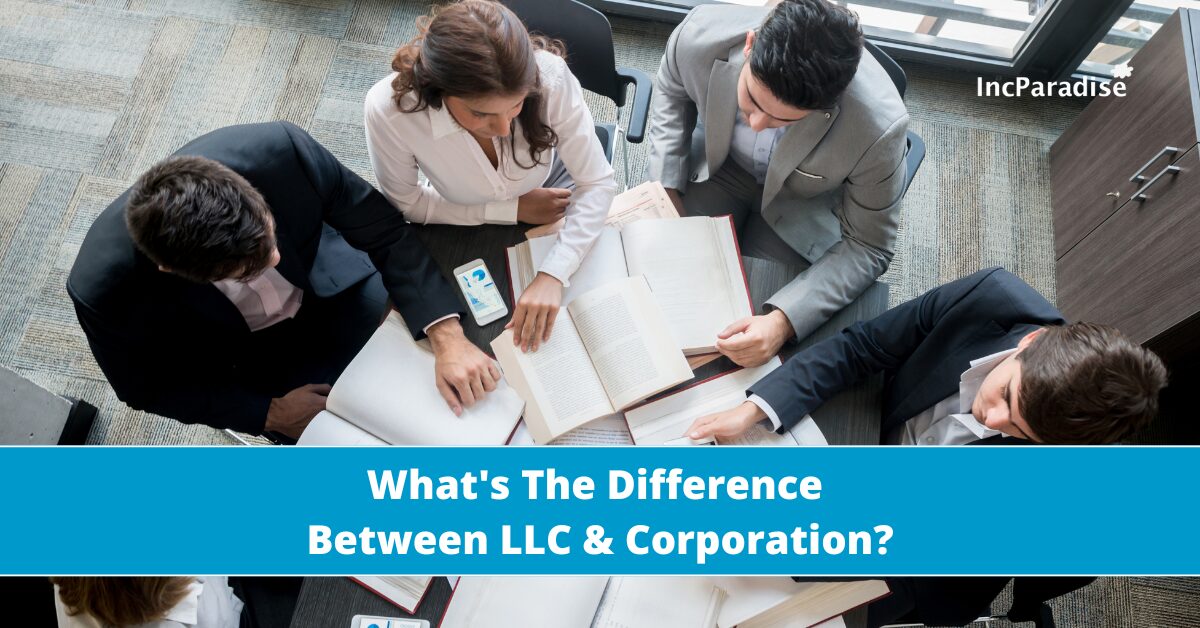You’ve got the business idea, the name, and maybe even your first paying customer. But before you go all in, there’s one big decision waiting: what kind of business should you form? Many entrepreneurs begin here, weighing options that may seem more complex than they actually are. A Limited Liability Company (LLC) often ends up being the sweet spot as it is simple to set up, flexible to run, and protective where it matters most. It’s that balance of flexibility and protection that makes the LLC a popular choice among entrepreneurs. Understanding how it works can help you decide if it’s the right fit for yours — and this article covers exactly that.

What is a Limited Liability Company
LLC stands for Limited Liability Company. It has rapidly become one of the most popular business entity types for new and small businesses. The reason for this is that it’s simpler and potentially more flexible than other business types (S-Corp., C-Corp., etc.). The LLC business structure combines the pass-through taxation of a partnership or sole proprietorship with the limited liability of a corporation.
This means that if you choose to form an LLC, your business will become its own legal entity, with separate debts and legal matters. However, LLCs are still tied to your personal taxes. If you are the owner of an LLC, you are referred to as a member, and LLCs can have a single member or multiple members. Unlike a Corporation or other business types, an LLC does not have shares or shareholders. Also, with an LLC, the members are not personally liable for the corporation’s debts and obligations.
Why choose an LLC as your Business Type
Now that you know what an LLC is, let’s talk about why so many business owners choose it. Beyond just being simple to form, an LLC gives you real advantages, including:
- Limited personal liability: LLC owners (members) are generally not personally responsible for business debts or lawsuits; their personal assets remain protected.
- Pass-through taxation: Profits and losses “pass through” the LLC to the owners’ personal tax returns, avoiding corporate-level taxation.
- Tax treatment flexibility: An LLC can often choose how it wants to be taxed (as a sole proprietorship, partnership, corporation, etc.), depending on its size and goals.
- Flexible management structure: Members can manage the business themselves or appoint managers; there’s no mandatory board of directors or strict hierarchy.
- Flexible profit distribution: Unlike corporations, where profit distributions follow share structure, LLCs can allocate profits and losses according to membership agreements.
- Improved credibility and separation: Having “LLC” in your business name signals professionalism, helps with banking and contracting, and allows a clear separation between personal and business finances.
- Lower ongoing formalities: LLCs typically have fewer administrative requirements (less paperwork and fewer mandated meetings) than corporations, thereby reducing overhead.
- Ownership flexibility: There are generally fewer restrictions on the number or type of members, making it easier to bring in partners or change ownership structure.
Organizational Chart Breakdown
- Members: These are the owners of the LLC. In a member-managed LLC, members participate directly in daily operations. In a manager-managed LLC, members act more as owners/investors and may not handle everyday tasks.
- Managers: In a manager-managed structure, managers (who may be members or third parties) oversee daily operations and decision-making. The operating agreement usually specifies their specific duties.
- Employees: The LLC may hire employees who work under the management of the managers or members and handle specific tasks or roles, just like any other business entity.
LLC Requirements
Every business entity must meet certain formalities, but LLCs work well because for their flexibility and ease of maintenance. Unlike corporations, they follow fewer compliance obligations, which makes them ideal for small business owners who prefer simplicity. Here’s what you need to know about the key requirements of an LLC:
- No mandatory annual meetings: LLCs don’t need to hold annual shareholder or board meetings. This keeps operations simple, allowing members to focus on running the business.
- Lenient record-keeping obligations: LLCs maintain accurate financial and operational records but don’t have to follow the strict minute-taking or reporting rules that corporations do.
- Operating Agreement (essential document): Every LLC creates an Operating Agreement to define how the business functions. It covers:
- Ownership structure and each member’s percentage
- Roles, responsibilities, and decision-making authority
- Procedures for adding new members
- What happens if a member dies or withdraws
- Profit-sharing and voting rights
Members keep the Operating Agreement as an internal document. It governs their relationship and serves as a reference for resolving disputes or clarifying ownership and management, but they don’t file it with the state. Also, members can amend the Operating Agreement at any time, provided there is mutual consent. This flexibility enables the LLC to adapt to growth, new goals, or changes in ownership.
The Different LLC Types
There are different types of LLCs, each designed to meet specific business needs and ownership structures. Understanding how each type works can help you select the formation that best aligns with your company’s goals and operational preferences.
Classification by Location
- Domestic LLC: If your LLC is formed and operating within your state, this is a domestic LLC. Your state has the authority to govern your LLC if it is established within its jurisdiction.
- Foreign LLC: This does not mean that the LLC was formed internationally and operating in the U.S. A foreign LLC is operating in a different state than where the LLC was established. For example, you might have developed your LLC in Texas, but you’re running your LLC in Georgia.
Management Structure
- Member-Managed LLC: This type of LLC is where all owners (members) are operating the business themselves, equally. This is the most common type of LLC.
- Manager-Managed LLC: If some of your business partners want to remain passive in running the business, then this type of structure is a manager-managed LLC. Either members or nonmembers can be delegated as a manager.
Ownership Structure
- Single-Member LLC: Simply put, this is an LLC with only one member.
- Multiple-Member LLC: Simply put, this is an LLC with multiple members. A multi-member LLC must be more careful in spelling out carefully with the LLC Operating Agreement the rights of each member in case the LLC folds, or there is a death or disagreement.
Specialized LLC Types
- Series LLC:A Series LLC works like a group of mini businesses under one main umbrella. Each “series” operates independently, with its own liabilities, assets, and members. If one series faces a lawsuit or financial loss, the others stay protected. As of 2025, 19 US States and Territories allow this type of LLC formation.
- Restricted LLCs: Restricted LLCs are a type of LLC available in Nevada only, introduced in 2009. These kinds of LLCs choose to be restricted within their Articles of Organization and therefore cannot make specific business distributions among members until ten years after forming their LLC.
- L3C: An L3C company is a for-profit company with a stated charitable social purpose. This type of LLC is a hybrid business structure. It uses the legal and tax flexibility of an LLC, the social benefits of a nonprofit organization, and the branding and market positioning advantages of a social enterprise.
- Anonymous LLC: An anonymous LLC is where the ownership details of the LLC is not made public by the state the LLC is registered. New Mexico is one of the only states that allows for genuinely anonymous LLCs.
Getting Started with Your LLC
Choosing to form an LLC is a big step toward building a secure and scalable business. From protecting your personal assets to offering flexible tax options, the LLC structure gives entrepreneurs the best of both worlds: simplicity and protection. If you’re ready to take the next step or are still weighing your options, IncParadise can guide you through every stage of your company formation. Our team helps with registration, documentation, and compliance so you can focus on growing your business with confidence.
For more information about Limited Liability Companies (their advantages, disadvantages, and setup process), visit our website or call us at 702.871.8678. We’ll help you get your new business up and running smoothly.
Last updated: November 2025








